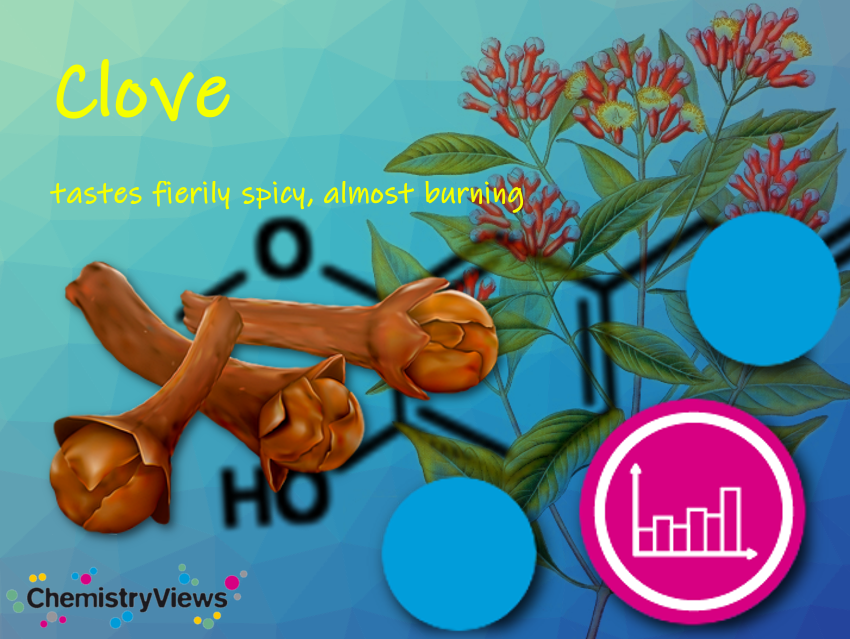We know cloves as a spice in the kitchen. Here we want to take a closer look at what clove is.

The clove tree is an evergreen plant that grows up to 20 m high. It grows best in a hot and humid sea climate. It begins to bear from the sixth year. The buds are picked by hand or knocked down with bamboo poles, and dried in the sun on mats or hordes. During this process, the fruit stalks must be cut off. Clove oil can be distilled from them.
.png)
Eugenol (2-methoxy-4-(prop-2-en-1-yl)phenol) is a phenylpropanoid with an intense smell of cloves. It is a colorless to pale yellow, aromatic oily liquid. Eugenol is a very suitable starting material for the total synthesis of structurally different natural products, such as vanillin.

References
- Ruth Genuneit, Gewürze und Backtriebmittel in der Weihnachtsbäckerei, Institut Dr. Flad, Stuttgart, Germany, 2019. (Retrieved November 24, 2020)
- William Cook, The Physiomedical Dispensatory, 1869. (Retrieved November 24, 2020)
Also of Interest
- Chemistry Advent Calendar 2020
ChemistryViews 2020.
Daily highlights from the chemistry of spices




